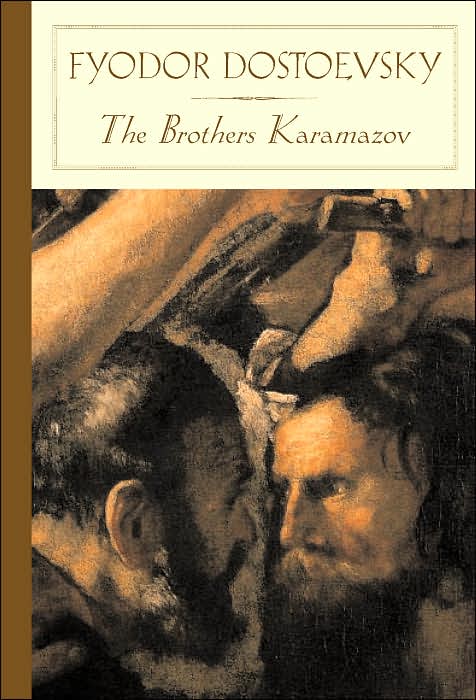
So my goal for this blog is to comment on the lectionary text each week. A venue, as it were, for me to engage the text and to have the text engage me. On the weeks that I happen to be preaching, I will simply post my sermon. The Gospel this week is Mark's account of the Transfiguration.
Overwhelming Glimpses
Mark 9: 2-13
Well, we made it back safe and sound from our trip to the Holy Land and let me just be the one to tell you that words fail. Twenty-four people from both our church and Sunrise UMC in Holly Springs left about two weeks ago for a ten day trip to Israel/Palestine where we made a pilgrimage to the places where Jesus was born, where he walked on water, where he preached his most famous sermons, to where he wept over the city of Jerusalem, where he was crucified, where he was buried, and where he ascended into heaven. The landscape in Galilee was breathtaking, the valley of Armageddon was awe inspiring, and Jerusalem was simply captivating. Superlatives don’t do that place any justice. Simply put, words fail.
Which is a problem if you happen to be a preacher. Words are my trade. Words are often all I have, whether I am counseling someone or going to see someone in the Hospital or standing to speak on Sunday morning, when you boil it down, all I have to offer are words. One of my professors in seminary said that he always wore as many vestments and holy looking things as he could because besides that, words were all he had! Words are my trade. And during this trip, words failed!
I was asked over and over again during the trip to offer some words for the group, just on the spot. Our guide, a local Arab Christian, would give us the historicity of the place where we were standing and almost like clock-work, when he had exhausted all the Biblical and historical data on any given location, he would turn to me and say, “Pastor, do you have some words for us?” And, like an idiot, I would start stammering and bumbling and try and pull up something to say which would nicely and succinctly wrap up the theological, historical and spiritual significance of an event or place. Inevitably my words were lacking and I would end up saying almost anything, which more often than not turned out to be nothing, in order to fill the silence. How do you “wrap up” the healing of Lazarus in Bethany, or the church of the Beatitudes or, God help me, Golgotha? Words fail.
Thankfully, I’m not the first bumbling disciple trying to fill the silence with failing words. St. Peter has blazed a trail before me. Peter, one who was never lacking for words, and the one to whom the rest of the disciples looked for leadership, is on his way to Jerusalem with Jesus in this morning’s Gospel text. Up to this point, they don’t know exactly why they are going, except that it is going to be the time of the Passover, so all Jews were headed up that way. And on their way to the Holy City of Jerusalem, Jesus takes his favorite three disciples and leads them to a mountain set apart. Standing there on the mountain with Jesus, Peter, James and John see an indescribable event. Words fail. Jesus is changed, morphed…transfigured before them. Mark tells us that his clothes became “dazzlingly white, like no one on earth could bleach them.” And, to top that off, Moses and Elijah are standing there with Jesus. The two most important people in the history of God’s working with the world, Moses, the writer of the law, and Elijah, the greatest of the prophets, both standing with Jesus testifying that he is the culmination of both the law and the prophets. Just when it is getting good and the disciples are taking in this overwhelming glimpse into what God is up to in the person of Jesus Christ, Peter feels the need to fill the holy silence with some bumbling words. “Lord, it is good for us to be here. Let us build three dwelling places, one for you, one for Moses and one for Elijah.” At this point in the story, just in case the reader misses the invasiveness of Peter’s comment, Mark inserts, “He didn’t know what he was saying for they were terrified.” Just before St. Peter’s interrupting words jar everyone out of the vision, a voice from the cloud speaks, “This is my beloved Son, listen to him.”.
Let Saint Peter and I be the ones to tell you first to tell you that sometimes holiness is best met with silence. Twice in this text, we are exhorted to be quiet as disciples. First, God speaks from the cloud and tells the disciples to listen to Christ. It’s hard to listen if you’re talking. Second, Christ says as much when they are all walking off of the mount of Transfiguration. He tells Peter, James and John not to say anything about what just happened until after the resurrection. “Keep quiet,” he says. In the face of the most holy places, in the presence of the most Holy One, words fail. Silence, somehow, does not.
It seems to me that silence is a rare commodity these days. We are not a good people at being silent. Perhaps that is because ours is a world filled with noise. Our days start with a jolt from an alarm clock. In the car, the radio drones on in the background. At work, conversations from others down the hall, phones ringing, emails buzzing, voicemails beeping, keep our ears from resting. When we get home, the Television is often on in the background just to fill the silence, and we fall asleep, having crowded out every silent moment of our day.
This has bled over into our holy moments with God. Look how wordy our worship is…prayers, songs, readings, sermons. Our evangelical efforts are often wordy, us trying to convince others why they should repent and believe the Gospel. Christian rhetoric is batted around in any arena, be it political or otherwise, until the words are useless and meaningless. Mind you none of these things are bad in and of themselves. Just like Peter’s idea to build the tents for Jesus, Moses and Elijah was not necessarily bad. It was just not best. Silence was best then in response to God. And, at times, silence is best now as our response to God.
On Wednesday, we will gather for Ash Wednesday. And with that, we will officially begin Lent. I have a suggestion for our Lenten life together this year. I propose that we, as a church, practice the age old discipline of silence. I propose that we practice it both collectively and individually. After all, when words fail, silence, somehow, does not. I propose that we practice being silent so that that our speaking might be good. Being a people who are comfortable with silence is to be a people of faith, who belive that our words are not nearly as important as the Word incarnate, who lived and dwelt among us. Who was the very glory of God, and gave us a glimpse of our hope in his own transfiguration. I propose that we inculcate the discipline of silence during lent, so that when words fail because the pain is too much, or the need is too great, or the problem is too large, we will be equipped to be silent and listen. Listen for the ways in which God is transfiguring the world, listen for the ways that God is redeeming our suffering, in our brokenness, and our pain. God is working to transfigure all of the world, not just to some set apart on a mountain, but to all who are in need of transformation. But if we are going to be a part of that, we are going to have to be silent and listen. Like Elijah, who heard God in a whisper.
Here’s my proposal. First collectively. I propose that we allow a time of silence in our worship. Not too long, but long enough to let the Word sit on us. So, after the sermon, I propose that we all just sit with the word that was just read and proclaimed before rushing into our next act of worship. In that time, in the silence of the wake of the Word, listen. The sermon may just be beginning. Secondly, indivudaully. I propose that we all take a vow of silence daily for the duration of Lent to practice our response to God. If you can do 30 minutes, great. If you can do 10, or even 5, that’s great too. But during those times of silence, I propose that we practice silence. No speaking, no entertainment, no phone calls, just silently sitting before the transfigured Christ. In the still cloud of silence, I am sure that God will speak yet again, “this is my beloved Son, listen to him.”







1 comment:
nicely done, quite appropritate for this sunday. wish I could hear your deliver it.
Post a Comment